Book review: The Power of Myth
by Joseph Campbell and Bill Moyers
★★★★★
Why do we need our folk tales, anyway? Why can’t our religious icons be accepted at face value, instead of lifting them up higher than life? How do phrases like “Son of God” spring so easily and meaningfully from our lips? Why must we idolize our heroes, why do we embrace our rituals?
Journalist Bill Moyers interviews Joseph Campbell to learn why mythology is so important to us. This is sort of a compilation of Campbell’s work. Says Campbell, mythology is the “song of the universe, the music of the spheres.” It is what turns each little cluster of believers, with their own heritage, into the world’s Chosen People. From Dante’s Divine Comedy to Native American rituals, Campbell has plenty of opinions. He’s an intellectual who is simply fun to read…he’s got a way of just making sense, like a sort of Feynman for philosophers, that leaves you feeling like maybe you finally understand something.
This isn’t a new book, but it’s one of those must-reads that we shouldn’t forget. I don’t think Campbell means to trivialize religion, culture or customs; rather, I dare say, you might even find God in these pages.

Book review: Odyssey of a Soul in Bondage
by Jon E. Quick
★★★
I was convicted of first degree pre-meditated murder thirty-four years, one month, and eighteen days after I was born.
This is a very disturbing autobiographical account of a man growing up in an obscure Christian sect with an abusive father. Sometimes known as the “friends and workers” or the “2x2s,” this is the same sect I grew up in. My own experience was radically different from Jon’s; I’m personally very happy to have been raised in what was, for me, a wholesome atmosphere. But the opinions of members and ex-members of this belief system are so extreme, some going so far as to call it a cult, that I must let you decide for yourself after reading the book. Because of my closeness to the topic, I feel uncomfortable rating it, so I’ll just review the book without a rating.
The state of mind of this persecuted man shows through clearly, the more so because we are reading his account from his own hand. Sometimes conflicted, sometimes accusatory, sometimes broken, sometimes resentful, sometimes repentant, it’s like a different Jon on each page. One person in his life is described as “evil” on one page and “sweet and loving” on another. The book ends with a plea to his ex-wife for forgiveness.
Before this final plea could be possible, however, Jon finds himself undergoing a Christian transformation in prison. While still behind iron bars, he is set free from his emotional bondage. “Having attained such freedom through the Grace of God, I can safely attest that I will never again be in bondage to the corruption, deceit, and lies of men, regardless of where I may be physically.”
Note to readers: If you’re not familiar with this Christian sect, a lot of the terminology won’t make sense. Start the book by reading the “terms used” in the appendix.

Book review: Jesus: A story of Enlightenment
by Deepak Chopra
★★★
Says Chopra, “This book isn’t about the Jesus found in the New Testament, but the Jesus who was left out.” This is a novel, about Jesus’ own period of enlightenment before he began his ministry, and how he found God. Or, rather, how he found himself, the Son of God.
Jesus turns down the opportunity to join the Zealots, studies with the Essenes (whom he disappoints), and eventually begins a long and dangerous trek to find a mysterious guru, where he discovers his true soul. By the end of the book, Jesus is ready to take on the Devil, in that famed three-part temptation.
Chopra’s Eastern/Buddhist background shines where it shouldn’t. Interesting and well-written, but certainly not scriptural! And not really my thing.

Book review: God & Empire
by John Dominic Crossan
★★★★
It’s Jesus vs. Rome. Who will win?
If you’ve read much about the first century, you’re already well aware of the conflict between Christian and Roman claims. Both sides laid claim to the Son of God. Both claimed the inauguration of a new, wonderful age. The Caesars, especially in Asia Minor, were worshipped as God and often went by the title Son of God. Caesar Augustus, in particular, was hailed as the savior of the world, the bringer of peace and prosperity.
The Christians claimed a coming kingdom, or a hidden kingdom; the Romans proved their kingdom by force and heavy presence. The Christian kingdom was not of this world; the Roman kingdom invaded every part of life. Jesus’ kingdom was one of nonviolence; the Roman kingdom was just the opposite.
Crossan highlights the conflict between the two, and what, exactly, the Christians were claiming in their “uprising.” Of particular interest, to me, was the discussion of Paul, whom Crossan divides into three categories: The radical Paul, the liberal Paul, and the conservative Paul, representing three stages of Pauline writings.
I give it four stars instead of five, not for the lack of quality, but because little is original from his other writings. It’s just organized and directed differently to emphasize a point.

Book review: A New Introduction to the Synoptic Gospels
by Roland Meynet
★★★★
This book is not what I was expecting when I saw the title! Wow. When Meynet titled his book an introduction, he didn’t mean he’d be providing a surface description. He meant that after you work your way through 415 pages of analysis, you’ll have barely turned the cover on the Synoptics.
You can give a man a fish, and feed him for a day. Or, you can teach him to fish, and feed him until they quit stocking the pond. This book is meant as a university text, to teach you how to analyze the Bible as a linguist, by taking note of the links which tie the pericopes together, and trying to grasp the logic which connects them. It’s a relatively new approach to Biblical study, sometimes at odds with the historical-critical method and normal form criticism. My rating of four stars does not represent my reading enjoyment, but rather, the teaching technique and depth of study. Reading Meynet’s book is not fun; it’s work.
Seriously. You’re going to study primarily two Bible pericopes in these 415 pages: the healing of the blind man at Jericho, and the calling of the rich man . You’ll study them in context, noting each text’s sub-sequences, carefully grinding out their meaning through rhetorical analysis of all three Synoptics.
This exhausting technique does yield results. As a simple example of the strength of this type of literary Biblical analysis, consider the story of the blind man at Jericho, as told in the Gospel in Mark. Or were there two blind men healed, as Matthew relates? Exegetes in the past have wondered which version is historically accurate; Matthew or Mark? But the question misses the point of the passage. Contextual analysis to the rescue: By reading up just a little bit, in both Matthew and Mark, we find the story of the sons of Zebedee, James and John, requesting that they sit on the right and the left of Jesus when he comes into his glory. Matthew has recognized the context, and aided in its interpretation by changing one man into two. The story of the blind man has become the story of two blind men in Matthew, and we now recognize the blind men as James and John.

Book review: Naked Pastor 101
by David Hayward
★★★★
This is David’s first collection of cartoons, 101 of them, and I hope many more follow. Cartoons just work! They help us laugh at ourselves, and then they help us think outside the box. In a cartoon, serious topics can hide behind lighthearted drawings.
And David’s work is funny. LOL funny. As the Naked Pastor, he bares his soul (not his body, sorry) about problems in the Church … often, problems that result from rigid rules or non-acceptance or unfounded assumptions about the nature of God. Most are annotated with a bit of the thought process that went into their creation.
This book is in no way disrespectful to the Church. David is an insider; he has completed masters in Theological Studies and in Ministry and Religion, and has been pastor of several churches over 25 years. That’s plenty of time for cartoonistic opinions to form, right? David admits that for this book he has purposefully chosen favorites among his less controversial drawings; rants against church vision and mission statements, and cartoons addressing the gay issue, have been omitted, so we may be drinking “Hayward light” at this time. Next time, David, lay it on us straight. We can take it.

Book review: The New Complete Works of Josephus
by William Whiston and Paul L. Maier
★★★★
I don’t know if this is a particularly good translation; I’ve nothing to compare it to, since I’ve never read any other. It’s not the translation I wish to promote, it’s the writings. Every Bible scholar, especially New Testament scholars, simply MUST read Josephus.
Josephus was a Jewish historian who wrote his books during the same years that most of the New Testament was being written. That is, the latter three decades of the first century. Josephus was not particularly well-liked among Jews; he abused his governorship, he defected to the enemy when captured by the Roman legions, and he wrote his history of the war to present the Romans in a good light. Given to exaggeration, he taints nearly every chapter of his War of the Jews with self-glorification and political and religious aims. Yet, he remains our most important historian for the war of 67-70 CE, which proved to be the springboard for the spread of Christianity, and to be honest, it’s his personal agendas that make his writing so interesting.
Oddly, as much as Josephus was hated, he became very important to Christians, because of his references to Jesus Christ. But scholars now doubt their authenticity. In one passage, the famed Testimonium Flavianum, Josephus names Jesus as the Messiah. Some through the centuries even claimed Josephus to be a Christian. (If you read my book about Revelation, you’ll come away with just the opposite opinion; Josephus may have played a surprising role in the story of Revelation!)
This book contains all four of Josephus’ writings:
The Jewish War, which describes the destruction of Jerusalem and the Temple.
The Life of Flavius Josephus, his own autobiography, which ends up as little more than a defense against the various attacks on his integrity during his governorship in Galilee.
Jewish Antiquities, a Bible-driven history of the Jews from the beginning of time.
Against Apion, a defense of Judaism.

Book review: Jerusalem
by Karen Armstrong
★★★
One city. Three faiths. Christians, Jews, and Muslims all lay claim to the Holy City. Armstrong’s treatment is impartial as usual, more interested in promoting understanding than any one belief system. She leads us through 4,000 years of history, as this turbulent landmark in the middle of nowhere grew from a tribal village into a cultural and religious phenomenon.
The book of Revelation, about Jerusalem: “The great city split into three parts, and the cities of the nations collapsed.” Is this a prophetic inevitability, or is there hope for peace? I’m one of the many with a placard hanging on my wall, requesting that we pray for the peace of Jerusalem. I read Armstrong’s book as research for my own book about Revelation, because Jerusalem, both the Old and the New, is the focal point of John’s Apocalypse.
Karen’s topic is extremely important for today’s world of religious unease, and it’s an absolutely fascinating topic. Unfortunately, I found the writing to be a bit more dry than usual for Armstrong. I think the book could have been condensed to about 2/3rd its size. But by the time you finish—if you’re able—you’ll have a better grasp of the bitterness and misunderstanding, and why all three religions claim Jerusalem as their own.

Book review: Jesus, a Very Jewish Myth
by R. G. Price
★★★★★
Thorough. Daring. Scholarly. Intelligent. Original. This work may be an undiscovered gem. I reviewed another book by R. G. Price a few weeks ago, but found this one to be even better.
Price begins with a provocative claim: “That Jesus Christ is a pure myth is the only explanation that is consistent with him being both larger than life and absent from history.”
Let me lead into the topic with a bit of personal commentary. There are a number of ways of reading the Bible, and each completes a paradigm of its own. For example, considering just the New Testament, you can read it in the traditional way, as if it describes the historical life of Jesus and his followers, and promises a future return of Jesus as a conquering Messiah. The New Testament makes perfect sense in this light, and reading the Bible doesn’t break, but rather strengthens, the paradigm. But you can also read the New Testament through the eyes of first- and early second-century writers, the audience for which it was written, and sense within its chapters the excitement of the expected immediate arrival of the Messiah and the absolute, complete assurance that the new age has either just begun, or is just around the corner. When read in this light, every word seems to emphasize the urgency of believers, who knew the world was immediately coming to an end. Another way to read the New Testament, another paradigm, is to recognize many of the stories as myth, midrash, and the retelling of Hebrew scripture, told with the intention of honoring a great man (Jesus). Again, you’ll find internal consistency, and the words of the New Testament make perfect sense in this light.
Finally, you can go all in. You can decide, as does Price, that not only are the stories mythical, their human subject is just as fictional. Jesus existed only as an allegory, or a mystical god, or an ideal. If you have never read the Bible this way, I encourage you to do so! Actually sit down with the New Testament, start with the presumption that Jesus never existed, order the books chronologically as best you can, and see if you can read it through. You may at some point recognize a turning point, a point at which Jesus became “real.” Or you may never be able to leave the old paradigm behind, that Jesus existed and lived exactly as described. Each reader forms their own comfort level, and though opinions are extreme on the topic, I would never tell you that one paradigm is “wrong” while another is “right.” The Bible is living word, and feeds each of us differently.
As I said, Price goes all in. But he approaches the topic of a mythical Christ from a different angle, and his is a welcome addition to scholarship. Rather than emphasizing Christianity as a copycat religion among pagan beliefs, he grants it its own unique Jewish flavor. He sees Christianity’s beginnings as a mystery religion built primarily upon Jewish scripture. He points often to apocalyptic literature, both canonical and non-canonical, comparing it to New Testament writings, including the letters of Paul. The testimony of Paul is, of course, critical to the thesis; did Paul believe in a recent, flesh-and-blood Jesus, or did he not? Price’s treatment is balanced and fair, as he covers the writings of Paul, both those that bolster his argument and those that traditionally have been used to support the opposing view.
Price discusses the writings of Philo of Alexandria (a Jewish philosopher contemporary with Jesus, but who never wrote a word about him), Josephus (including the famed Testimonium Flavianum which purports to name Jesus as the Messiah but is nearly universally recognized among scholars as a forged passage) and others to expose the scarcity of historical collaboration regarding Jesus. But more than that, Price explains why Christianity should most logically be recognized as mythical. His coverage is in depth and convincing, and concludes with what he sees as a logical progression for how Christianity evolved into the worship of a god in human form, living within first-century history.
I loved the book, and the great research, even as I remain a hard sell. I’ll review, shortly, another book arguing the other side of the coin.

Book review: The Help
by Kathryn Stockett
★★★★★
The Help is a powerful victory celebration for the human race. Once in a while, a story comes along that transcends entertainment and hits us between the eyes. Watch the movie. Read the book. Watch the movie again.
This touching story about bridging the difference between white Mississippi homeowners and black maids in the 60’s will leave you laughing through your tears. Conflict grows over separate bathrooms, separate eating places, distrust, and legal inequity. It is only because we, as a nation, as a human race, have taken great steps toward conquering racism that we can look back together on the 60’s and smile at its heroes.
“God don’t pay no mind to color,” claims Aibileen, one of the “help” who raises a string of seventeen white children belonging to mothers too busy or uninterested to bother. These black maids, and the one white woman with enough fire to bridge the gap, are the heroes of the story. Stockett’s runaway bestseller overcame more than 60 rejections from literary agents and numerous sneers from critics wondering how a white author dare try to get inside the heads of black people who had long been considered property.
Please forgive my religious commentary over the remainder of the review. Racism has not been an easy monster to eradicate, and we still have obstacles to overcome. But we’re working on them, and are right to celebrate our progress. Sexual inequality has been another hurdle. Religious intolerance still occasionally rears its ugly head. But there is one area where the struggle against prejudice remains most fierce, and in this arena, our favorite religion (Christianity) has been far more of a hindrance than a help. This disturbing Biblical passage highlights the obstacle we must somehow overcome:
Romans 1:26-27, Because of this, God gave them over to shameful lusts. Even their women exchanged natural relations for unnatural ones. In the same way the men also abandoned natural relations with women and were inflamed with lust for one another. Men committed indecent acts with other men, and received in themselves the due penalty for their perversion.
“Due penalty” for their “perversion?” Sigh. We’ve come so far in some areas. Can we achieve the same level of victory in the arena of Gay Rights? Can we overcome the teachings of our holy books and leave behind our prejudices over differences in sexual preference? This would mean either recognizing that the Bible is imperfect, or rejecting the obvious translation in favor of a more humanitarian understanding. Frankly, I don’t care which we choose as Christians … as long as we choose one or the other. Let’s not let our Bible make us any less Christian.

Book review: The Feasts of the Lord
by Kevin Howard and Marvin Rosenthal
★★★★★
Excellent! Whether you are a Jesus scholar or a Christian, this book is for you. And if you’re both, this book can’t be missed. You’ll learn about:
Purim – the Feast of Lots
Also there’s a great discussion of the Jubilee year. Inspirational and informative, complete with pictures, photos and charts, Howard and Rosenthal first explain the Jewish calendar and discuss the flavor and atmosphere of the Spring and Fall seasons. Then they go through each of the feasts in more detail, presenting their Biblical observance, modern-day observance among Jews, and most fascinating of all, their fulfillment by Jesus. Preterists and historical-critical scholars will easily relate the fulfillment of each feast to the first century, while believers in a futuristic return of Christ will be just as satisfied. (Howard and Rosenthal subscribe to the traditional futuristic interpretation.)
I can’t overemphasize how much more meaning you’ll find when you read Paul and the Gospels if you start with a basic understanding of the Jewish Feasts. The New Testament just reads so much more rich and inspirational from a Jewish perspective! Particularly the Johannine literature, John’s Gospel and Revelation, in which an underlying theme is the fulfillment of the Jewish Feasts. Both these Biblical books recognize the destruction of the Temple as the end of an age, presenting Jesus as the replacement for all the Jewish rituals.

Book review: The Message Bible
by Eugene H. Peterson
★★★★
I love this contemporary Bible! It’s not the most accurate translation—it’s really not fair to even call it a translation, but rather a paraphrase betraying Peterson’s religious convictions—but I just find it enjoyable to read. It’s poetic and beautiful. Do not use it as a study Bible, but as an inspiring read.
I chose the book of John to highlight some of the translations, so you can get a feel for the wording. These aren’t my favorite passages, but they do highlight what I mean by a “paraphrasing.”
KJV: John 1:12-13, But as many as received him, to them gave he power to become the sons of God, even to them that believe on his name: Which were born, not of blood, nor of the will of the flesh, nor of the will of man, but of God.
Message: But whoever did want him, who believed he was who he claimed and would do what he said, He made to be their true selves, their child-of-God selves. These are the God-begotten, not blood-begotten, not flesh-begotten, not sex-begotten.
KJV: John 1:31, And I knew him not: but that he should be made manifest to Israel, therefore am I come baptizing with water.
Message: I knew nothing about who he was—only this: that my task has been to get Israel ready to recognize him as the God-Revealer. That is why I came here baptizing with water, giving you a good bath and scrubbing sins from your life so you can get a fresh start with God.
KJV: John 3:29-30, He that hath the bride is the bridegroom: but the friend of the bridegroom, which standeth and heareth him, rejoiceth greatly because of the bridegroom’s voice: this my joy therefore is fulfilled. He must increase, but I must decrease.
Message: The one who gets the bride is, by definition, the bridegroom. And the bridegroom’s friend, his ‘best man’—that’s me—in place at his side where he can hear every word, is genuinely happy. How could he be jealous when he knows that the wedding is finished and the marriage is off to a good start? That’s why my cup is running over. This is the assigned moment for him to move into the center, while I slip off to the sidelines.
KJV: John 6:43-44, Jesus therefore answered and said unto them, Murmur not among yourselves. No man can come to me, except he Father which hath sent me draw him: and I will raise him up at the last day.
Message: Jesus said, “Don’t bicker among yourselves over me. You’re not in charge here. The Father who sent me is in charge. He draws people to me—that’s the only way you’ll ever come. Only then do I do my work, putting people together, setting them on their feet, ready for the End.

Book review: God Soul Mind Brain
by Michael S. A. Graziano
★★★★★
Can a science book be also a feel-good book? This one is. Thank you, Graziano, for the lift.
Graziano brings to the table a professorship in social neuroscience, and builds atop the work of Dawkins and others in social memes, to explain what makes us human. He explains the workings of the brain to model the world around us, helping us interact socially and “feel” our way through life. Consciousness, the great mystery of our age, is merely “social perception applied inwardly.” It’s a process, not a thing. The book is short and very readable, but if you do find yourself struggling to grasp or appreciate the material, then skip over parts, but don’t put the book down before the final chapter.
Graziano is an atheist who thinks religion is complex and marvelous. That’s a good thing, because he also feels religion cannot be outgrown. He wants nothing to do with the aggressive new atheism which seeks to ridicule the religious into discarding dangerous beliefs for rational thinking. “I simply think that eradicating religion is not possible. It is a fallacy that ignores the specs of the human machine. We are not rational entities. Religion, like all culture, grows on the social machinery in our brains.”
God, it turns out, is the amygdala, though Graziano would never say this outright, and he’ll probably hunt me down for misrepresenting him. His own definition of God is “the perception of intentionality on a global scale. It is the perception of a single, unified mind behind every otherwise inexplicable event.” Don’t worry if this sounds like geek-speak, because the discussion of intentionality will make the definition clear and simple. In fact, everything in the book is clear and simple, enjoyable and unforgettable. Read it!

Book review: Jesus Potter Harry Christ
by Derek Murphy
★★★★★
Was Harry Potter molded in the form of Jesus Christ? This book touches on the similarities between Jesus and Harry, but only as a surface introduction and running theme floating above a much deeper topic. The meat of the book is in its serious research into Jesus as a nonhistoric figure, a developed myth. Like our favorite little wizard.
This idea of a nonhistorical Jesus greatly disturbs most Christians. Murphy takes a stab at explaining our unease: “If Jesus was not historical, he would have been no different from other myths and fables … he would be meaningless, and it is impossible for him to be meaningless, because he is meaningful to me. Therefore he is historical.” He’s right, the idea of Christ as a myth is more than a bit disconcerting; it hits at the very heart of many of us.
Yet Murphy’s intent is not to demote Jesus to the role of an ordinary fictional being, or even an ordinary god. Jesus was never meant to be the same as other contemporary figures of mythology; to his storytellers, he was the epitome of such. “Jesus would be something entirely new simply by virtue of his being an assimilation of the best features of each. Jesus is the culmination and combination of all other religious traditions of his time.”
Murphy sifts through various mystery religions and myths of a dying and resurrecting god, and their possible influence upon the Gospel story. For once, it’s done tastefully and without sensationalism. Maybe you’ve read works by Freke, Dougherty, and Harpur. While I don’t want to take anything away from those researchers—their books are interesting in their own right—I found Murphy’s tempered treatment much more to my taste. Without trying to foist a Gnostic version of Christianity on me, and without succumbing to overzealous scholarship, Murphy gently yet forcefully introduces the strong similarities between Christianity and other first-century religious philosophies and mystery cults, concluding in the strong likelihood that Jesus was a mythical savior.
I cannot help but add my two cents. Part of Murphy’s argument seems to be that it’s unreasonable to expect first-century writers to knowingly attribute mythical qualities and stories to a historical person. Ergo, Jesus must have been understood mythically. I must confess that my area of research biases me in favor of a historical Jesus. I’m a hard sell, because for years I immersed myself in the topic of divine attributions awarded to real, historical persons in the Imperial Cult (the cult of the Caesars) and I recognize much of the New Testament as a response on the same playing field; Christians lifting up their guy in the same manner. I find nothing strange about honoring a man such as Jesus in supernatural story and find it a quite plausible explanation for the plethora of Jesus’ similarities to pagan gods and heroes.
Additionally, in order for Murphy to prove Jesus was never a real person, so much hinges on Paul, our earliest Christian writer, and Paul is an enigma. Murphy points out many interesting similarities between the teachings of Paul and the mystery religions, where the central rite, it appears, was a symbolic death of the initiate, followed by rebirth into a new life. Sounds a lot like Paul, doesn’t it? Murphy argues that Paul recognized Jesus’ crucifixion metaphorically, and expected his converts to experience the same death. Unquestionably, Gnostic strands of Christianity did worship Jesus in the form of a mystery religion, and such groups did embrace the writings of Paul. But would such an understanding of Jesus drive Paul to such great suffering and imprisonment? Would it leave him absolutely convinced that the world was ending—quite literally and quite rapidly—and that believers in Christ would be swept up to heaven? Remember, Paul was so convinced the end of the world drew near that he even encouraged abstinence, telling his readers that the time grew so short that they needn’t bother marrying.
So, even though it’s hard for me to fully embrace Murphy’s conclusion, I loved the book, and found it to be a fascinating and scholarly contribution to a very hot debate. It should be welcomed as such.

Book review: Adam, Eve, and the Serpent
by Elaine Pagels
★★★★
Augustine, arguably Christianity’s greatest teacher, often stressed the sinful nature of sexual desire. Adam’s sin corrupted the whole of nature itself, and infants are infected from the moment of conception with the disease of original sin. When did this idea come about that sex is inherently sinful? When did the fall become the Fall?
In Genesis 1, God gifted the power of earthly rule to Adam. Yet, in the late fourth and fifth centuries, this message began to change. Adam’s prideful desire for self-government led to the fall—I mean, the Fall—of mankind, and ever since, humanity has been sick, helpless, irreparably damaged. Human beings are incapable of self rule, not in any genuinely good way.
Says Augustine, “even the nature of the semen from which we were to be propagated” is “shackled by the bond of death.” Every being conceived through semen is born contaminated with sin. Christ alone is born without this sin, this libido. Because of Adam’s disobedience, “the sexual desire of our disobedient members arose in those first human beings.” These members are rightly called pudenda [parts of shame] because they “excite themselves just as they like, in opposition to the mind which is their master, as if they were their own masters.”
Okay, perhaps I have overemphasized Augustine and his hangup about sex. There’s more to the book, and Pagels is a good writer who manages to turn even this dubious topic into a fascinating read.

Book review: Revelation, The Way it Happened
I enjoy reading the reviews of my book … sometimes. Overall, the average review is quite positive, so I’m pleased. But to label the book “controversial” turns out to be an understatement. Perhaps that’s par for the course for any edgy religion title? Here are a few contradictory snippets that made me think differently about my own book. (None of these reviews are by anyone I’ve ever met.)
I think Christians reading Harmon’s work will either find their faith shaken, or feel the need to utterly deny his findings, however sound they may be. Once you begin to realize when these biblical books were written, by who, and using what source material, you can have little choice than to either discount it out of hand or seriously reevaluate the ground on which your faith currently stands.
–Sandra Novotny, thewitchescupboard.com
If you are a Christian who loves the Bible, wouldn’t you want to know how the words of the New Testament books were heard by the ears of their earliest listeners, for whom they were written? That is the purpose for which Lee Harmon wrote his book Revelation: The Way it Happened. In my opinion Mr. Harmon succeeds in reaching this goal. He is historically accurate and true to his faith.
–Rabbi Stephen M. Wylen, author of The Jews in the Time of Jesus
I doubt anyone can be convinced against their religious beliefs, so I have to side with Rabbi Wylen on this one. Some found my book unoriginal, others cutting edge:
A rewarding read and it opens up for us a new understanding of what this canonical text might mean. Finally someone has detected a plausible historical fit and this represents a superb achievement.
–Barrie Wilson, Professor, Humanities and Religious Studies, York University, Toronto, author of How Jesus Became Christian
This is a recognized interpretation called Preterism.
–Ruth Meyers, Librarything reviewer
Had Ruth read beyond page ten, she would have known better than to label it Preterism. Preterists will be quick to disown any historical-critical interpretation, especially mine…though, hopefully, not without first learning some interesting first-century facts to help bolster their own beliefs. But disagreements cropped up in more than just interpretation. The layout of the book is unconventional, splicing together fiction, scripture, and historical narrative, which left some feeling discombobulated and others invigorated.
In order to distinguish between inspired scripture, the author interpretations and explanations, and the fictional story, Harmon uses different fonts and spacing for each. This allowed for great ease in reading and thought transition.
–Vicki Landes, author of Europe for the Senses – A Photographic Journal
It’s an excellent way of explaining the complexity of Revelation, and I believe that it works very well.
–Frank J. Konopka, top 500 reviewer on Amazon
The effect of this attempt at synthesizing fiction with historical and textual research is one of confusion rather than clarity.
–T Polyphilus, Librarything reviewer and author
One reviewer wrote and said she could not give the book a decent review, as it met her qualifications for neither fiction nor nonfiction. Ruth Meyers, above (the one who read only ten pages), called it “completely incoherent.” Another said she read the book twice; once through for the fiction, then again for the nonfiction. Perhaps that’s the trick.
In the end, many readers will continue to believe about Revelation what they wish to believe. That’s how religion works, right?
I don’t necessarily agree with many of his findings and opinions, but I can appreciate the amount of work that went into developing them.
–Jason Lautzeneiser, Amazon reviewer
The historical context is unquestionably true and described in thorough detail.
–Logan, goodreads.com reviewer and author
So, whether you loved or hated the book, I’d be curious to hear what you think.
–Lee Harmon, author, Revelation: The Way it Happened

Book review: How Jesus Became Christian
by Barrie Wilson, Ph.D.
★★★★★
This is a long overdue review of a great new book. Wilson highlights the tension of Christianity’s founding movement, and asks the question: Was Jesus a Jew or a Christian? Paul’s brand of Christianity, especially, Wilson finds anti-Semitic, in stark contrast to the Gospel of Matthew and its reliance upon Torah. Paul, Wilson theorizes, hijacked Jesus for himself, turning Christianity into a Gentile religion.
Wilson’s portrayal of conflicting religions—the “Jesus movement” of the Jews, and the “Christ movement” of Paul—makes for fascinating reading. Paul experienced a mystical vision of the Christ, and everything he teaches flows from that deep, spiritual, ongoing connection between Christ and Paul. What used to be so simple became a complex theology, Paul’s message that all could be saved in Christ resounding throughout the Roman world.
Wilson discusses the book of Acts and its “revisionist history,” entwining Paul’s world with the Jesus movement as if they are one and the same, and concludes that there is simply no corroborating evidence for the Acts version. Instead, Paul’s letters betray an entirely different atmosphere. The Book of Acts invented history, and the version of Christianity we know today is better labeled “Paulinity.” The Jesus movement slowly faded away. In effect, the Jesus Cover-Up Thesis contends that early Christianity effectively killed off the historical Jesus. In the epilogue, Wilson encourages recovering the human Jesus and rediscovering his Jewish roots.
A thought-provoking and well-written book, definitely worth reading.

Book review: Four Views on the Book of Revelation
]by Stanley N. Gundry and C. Marvin Pate
★★★★
This book presents the book of Revelation from four different perspectives. After about a 30-page overview, four different authors present their insights.
Kenneth L. Gentry, Jr. covers the Preterist view. There are variations of Preterism, but the general idea is that the Bible’s eschatological promises have been fulfilled. Revelation’s bloody war scenes occurred in the first century. Gentry is an established Revelation scholar who writes clearly, but this is not his most lucid writing.
Sam Hamstra Jr. writes about an Idealist view. I would call it a “spiritual” view. Such interpreters find Revelation to be a message of “assurance, hope and victory” in its relevance to today’s struggles.
C. Marvin Pate, who serves also as the book’s general editor, discusses a “progressive dispensationalist” view. The arrival of Jesus 2,000 years ago is the dawning of a the “age to come,” but it is not yet complete; it awaits the Parousia for its consummation.
Finally, Robert L. Thomas lays out the classical Dispensationalist view, the common futuristic interpretation. While there are still many divisions in this category, Thomas strives to present a “typical” belief.
In my opinion, Steve Gregg’s book Revelation, Four Views–A Parallel Commentary on the same topic is more comprehensive and objective, and also more readable. But it’s also much longer; today’s book should be considered a compact, argumentative introduction by comparison.

Book review: Points of Apostasy: Conservatives vs. The Bible
by Richard Musick
Today’s book forms a compromise for me. I am not political, and I want nothing to do with politics on my blog, yet curiosity about a book led me to agree to do a review. I said I’d introduce the book and its content without a rating, fearing any rating might be misconstrued as approval or disapproval of the book’s political stance. So, here goes.
“If a belief, principle, or action is in accordance with the Bible, it is right. If it is not in accordance with, or is contrary to, the Bible, it is wrong.” Do you agree?
“When I decide what position I wish to take on an issue, I decide based upon Biblical guidance. That is also how I decide how to vote on any given issue.” Do you approve?
Musick highlights the George W. Bush administration to drive home his points. He delves into Bush’s record and accomplishments, concluding that while Bush promoted himself as a Christian leader, he acquiesced to non-Christian values. Musick sites example after example, and calls Bush’s form of Christianity “apostasy.” Question: Is the Bible a clear, straight, and consistent plumb line by which to measure leaders and the appropriateness of their decisions? Are religious labels, whether used in condemnation or approval, appropriate terms for political judgment?
Now, after you’ve had a moment to form an opinion about the above questions, you might be surprised at the Christian values Musick wishes our government would uphold (taken from the chapter headings):

Book review: The Hour I First Believed
by Wally Lamb
★★★
Spoiler alert…
If there’s one word to describe this book, it’s “joyless.” After seven hundred pages of painful reminiscing about tragic deaths, troubled teens, Columbine, and depression, the main character reaches a solemn conclusion about life and it’s one hope. Life’s redeeming quality is an enduring hope for a better future.
Caelum, Wally’s first-person character, struggles to understand. “God: big G, little g? Buddha? Allah? The Holy Trinity? Is god the DNA we bring forth? The genes that mutate on the cliff’s edge of chaos? Beats me.” Caelum slides not-so-gently into old age by book’s end, nearly everything taken from him, and finally reaches acceptance.
Leave this book to the psychologists; it’s a downer. I wouldn’t review it except that it did resonate with me in one way. For some, the only imaginable “better future” is heaven. Some say that my brand of Christianity and its focus on our earthly life serves only to rob others of faith. Heaven is a dream held out to all who find themselves buried under life’s hopelessness. Do we truly need our dreams of heaven, and if so, am I performing a disservice by promoting the humanitarian side of Christianity over the supernatural? Am I stealing the joy of the next life from believers in the same way Wally steals our joy in this life?
I confess, it sometimes troubles me.


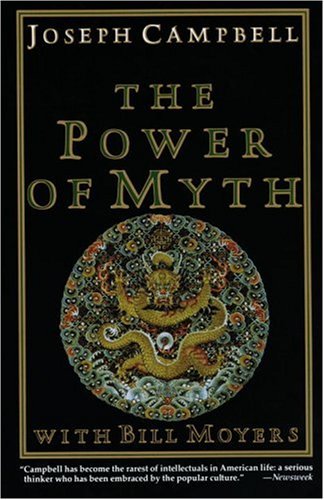
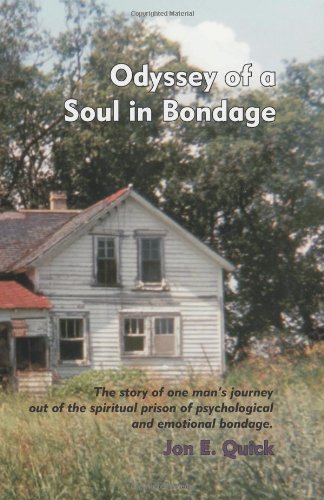
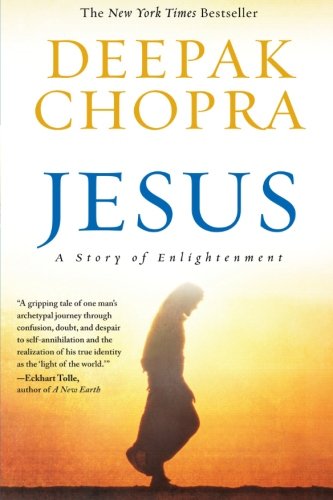
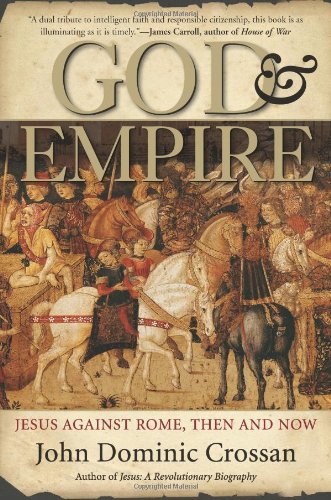
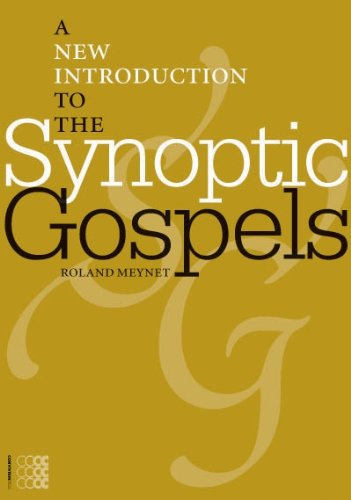
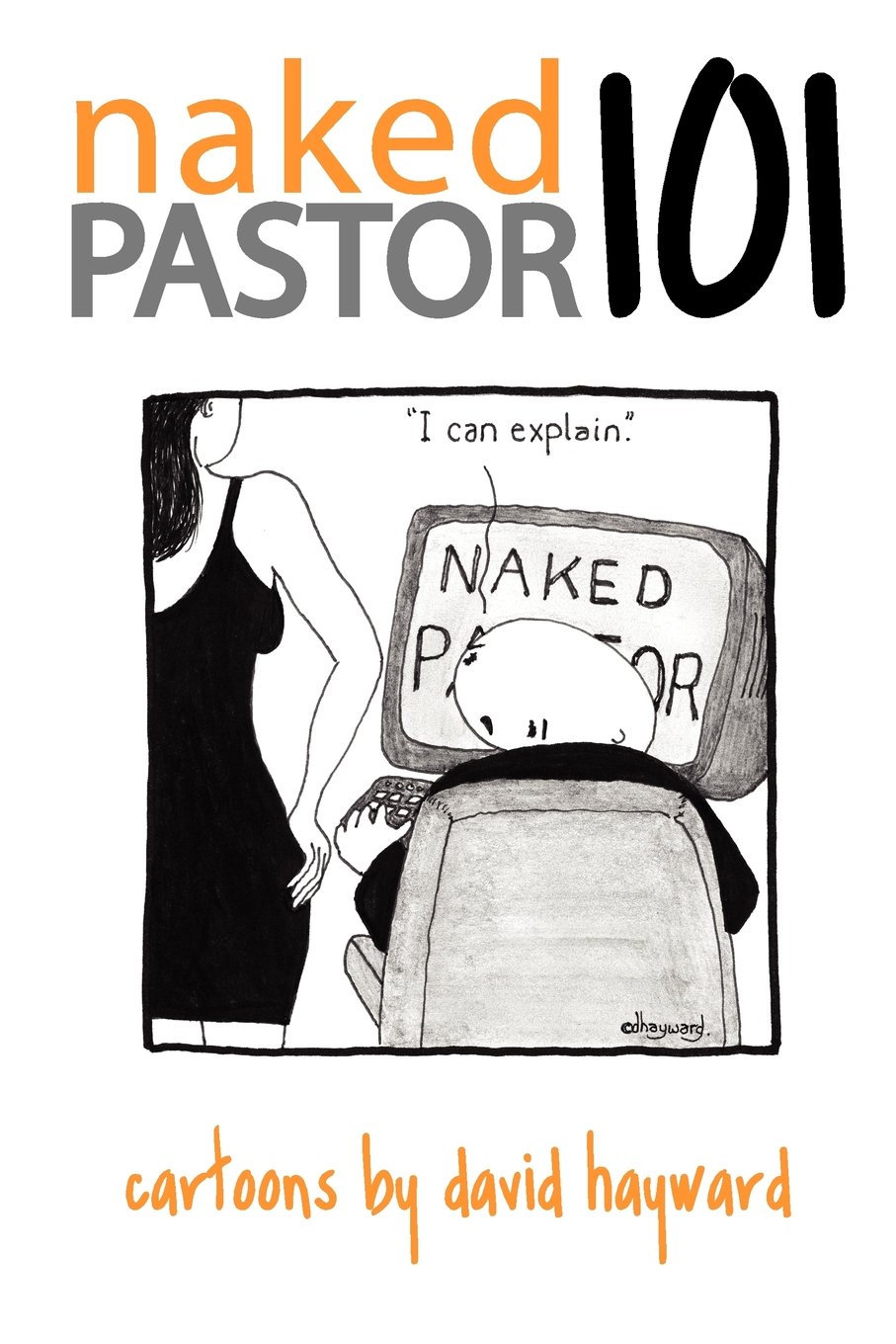
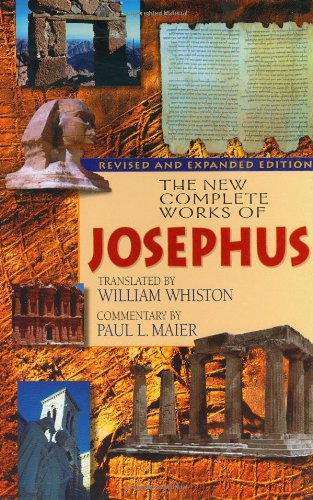
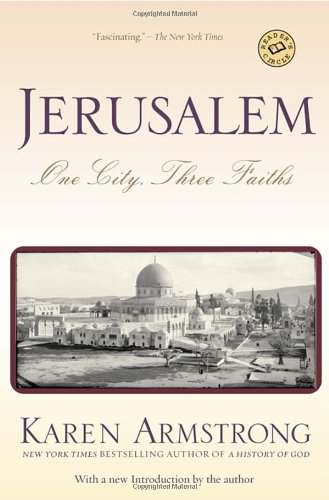

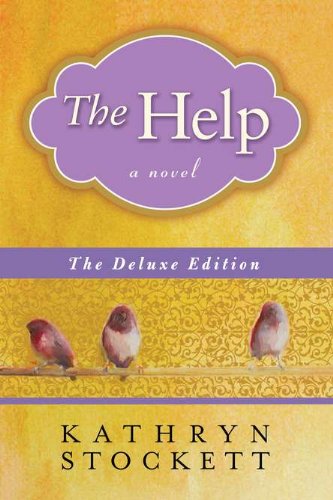
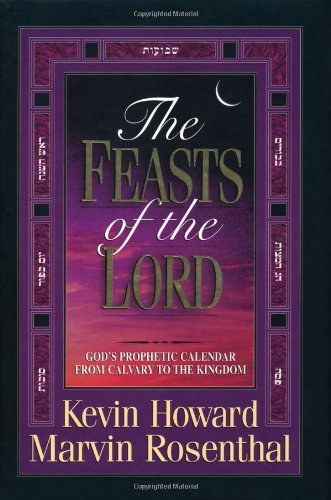

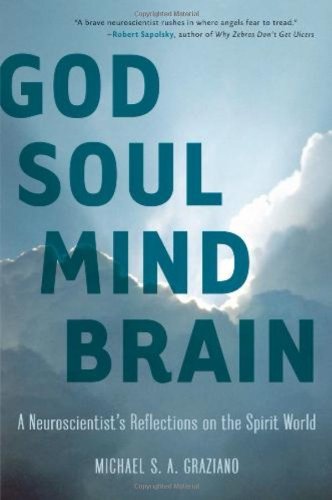

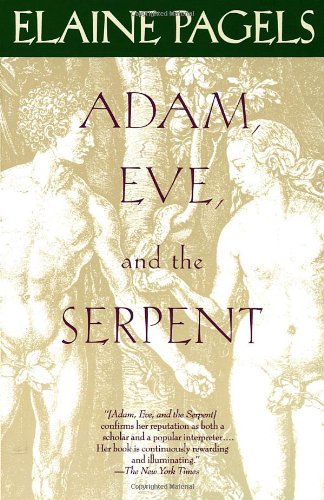
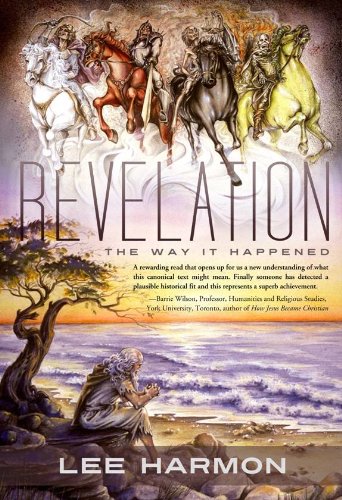

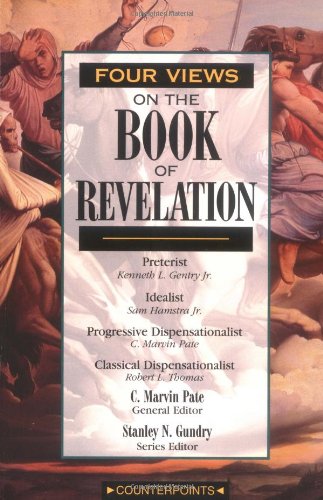

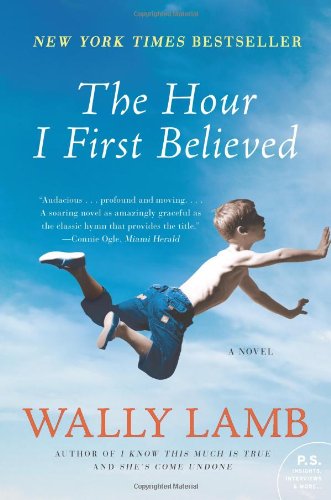









 354 Circles
354 Circles
 603 Goodreads Friends & Fans
603 Goodreads Friends & Fans

 Hello! I'm an author, historical Jesus scholar, book reviewer, and liberal Christian, which means I appreciate and attempt to exercise the humanitarian teachings of Jesus without getting hung up on any particular supernatural or religious beliefs.
The Bible is a magnificent book that has inspired and spiritually fed generations for thousands of years, and each new century seems to bring a deeper understanding of life’s purpose. This is true of not only Christianity; through the years, our age-old religions are slowly transforming from superstitious rituals into humanitarian philosophies. In short, we are growing up, and I am thrilled to be riding the wave.
I avidly read all thought-provoking religion titles. New authors: I'd love to read and review your book!
Hello! I'm an author, historical Jesus scholar, book reviewer, and liberal Christian, which means I appreciate and attempt to exercise the humanitarian teachings of Jesus without getting hung up on any particular supernatural or religious beliefs.
The Bible is a magnificent book that has inspired and spiritually fed generations for thousands of years, and each new century seems to bring a deeper understanding of life’s purpose. This is true of not only Christianity; through the years, our age-old religions are slowly transforming from superstitious rituals into humanitarian philosophies. In short, we are growing up, and I am thrilled to be riding the wave.
I avidly read all thought-provoking religion titles. New authors: I'd love to read and review your book!
 Hi! While Lee writes the articles and reviews the books, I edit, organize, and maintain the blog. The views expressed here are Lee's but I'm his biggest supporter! :-)
Hi! While Lee writes the articles and reviews the books, I edit, organize, and maintain the blog. The views expressed here are Lee's but I'm his biggest supporter! :-)
Connect With Me!